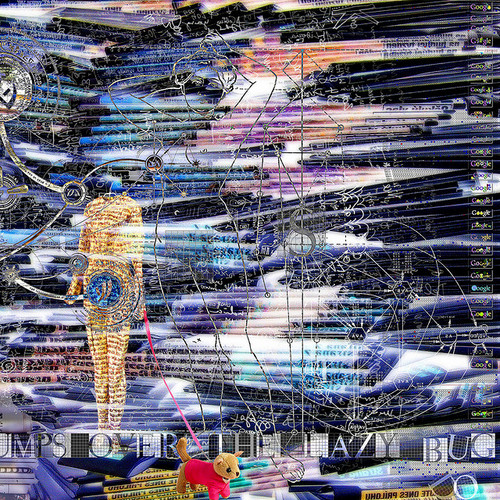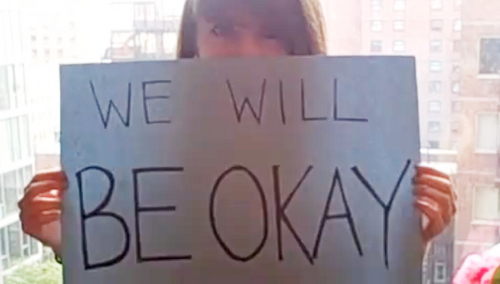Nonstop Reading Group’s recent opportunity to engage with Sheila Slaughter via video dialogue, concurrent with our engagement of her and Gary Rhoades’ published work, brings their key observations about an ascendant capitalist learning regime both into clear relief and close … Continue reading “The Nonstop Educational Common”
Category:
The Educational Commons – Introducing the Nonstop Institute
Ashley DawsonAs Michael Cohen’s recent posting on the neoliberal crisis and the Open University makes clear, education as a human right is under assault around the world. Cohen’s discussion of the context in Britain paints a particularly dire picture, but universities … Continue reading “The Educational Commons – Introducing the Nonstop Institute”
Labor & Social Transformation at the Brecht Forum
Michael RalphWednesday December 15th, 2010 7:30 PM
Brecht Forum: Strategic Visions Series Labor & Social Transformation
We are facing multiple crises–financial, social, economic, ecological, cultural…–but progressive forces are very much on the defensive. How do we forge a new politics that puts labor rights and human needs first? Panelists could be asked to draw from their own thinking and experience.
The Neoliberal Crisis and the Open University
Michael CohenBy now we should all recognize the global economic effects of neoliberalism. David Harvey reminds us that free market policies have led, first and foremost, to a dramatic class realignment in which the relative egalitarianism of the post-World War … Continue reading “The Neoliberal Crisis and the Open University”
Towards a Politics of Solidarity
Social Text CollectiveThe call for proposals for next year’s Left Forum is now out. The Forum will take place March 18-20, 2011, at Pace University in New York. Click here for more information.
X-Ray of Civilization
Leon HiltonDavid Wojnarowicz and the Politics of Representation Discussed: “Hide/Seek: Difference and Desire in American Portraiture,” National Portrait Gallery, Washington DC. October 30, 2000 through February 13, 2011. David Wojnarowicz often said that he wanted his art to be an “X-Ray of … Continue reading “X-Ray of Civilization”
Letter from Italy
Ashley DawsonThe Berlusconi government seems to be on its last legs here in Italy, but somehow the old Mephistopheles seems to keep controlling the show — apparently bribery as well as arm-twisting has been involved. Meanwhile, in Torino, where I’m teaching … Continue reading “Letter from Italy”
The Dramatic Face of Wikileaks
Biella ColemanWikileaks: It has caused a firestorm of debate among very different sectors of the population and about different topics: from the state of journalism (is it broken is it not?); to how much secrecy is acceptable for diplomatic negotiations, the … Continue reading “The Dramatic Face of Wikileaks”
UK Higher Education cuts and Student Occupations
Tariq JazeelAs many will already know, following the UK Con-dem government’s Comprehensive Spending Review, universities in the UK are facing massive cuts to their core funding. Coupled with this, parliament will be voting next week on a bill that will enable … Continue reading “UK Higher Education cuts and Student Occupations”
Queer Suicide: An Introduction to the Teach-In
eng-beng limWith so much affect percolating in the public discourse around the recent spate of gay teen suicides, what can an academic teach-in offer vis-à-vis these events? This Periscope dossier features an eclectic collection of essays, blogs, position papers, and op-eds from a multidisciplinary group of scholars zeroing in on a spectrum of issues, from gay rage and new technologies of sexuality to anti-bullying legislation. It organizes a kind of online teach-in, a portal to the multiple conversations and action happening around the country about gay teen suicide.
Ecologies of Sex, Sensation, and Slow Death
jasbir puarThere are many things lost in the naming of a death as a “gay youth suicide.” I want to focus on two aspects of this naming: one, what is contained in the category of sexuality and two, what … Continue reading “Ecologies of Sex, Sensation, and Slow Death”
Making It Better in the Classroom: Pedagogical Reflections
Ann PellegriniI have been teaching a lecture class on “Religion, Sexuality, and American Public Life” at New York University since 2004. I love teaching this class. The students (the class size is usually capped at 60) are uniformly engaged and … Continue reading “Making It Better in the Classroom: Pedagogical Reflections”
It Gets Worse…
jack halberstamAt bullybloggers, the blogging site that Lisa Duggan, Jose Munoz and Tavia Nyong’o and I sometimes call our internet home, we believe in bullies. No, not those kinds of bullies, not Tennessee Williams’s no-necked monsters, the brutish boys who … Continue reading “It Gets Worse…”
Gay Rage
joon oluchi leeSuicide is an act of violence. Most of the recent spate of suicides committed by young gay men have been attributed to homophobic bullying. But killing oneself is not necessarily an act of fear and escape. The one who … Continue reading “Gay Rage”
Looking Through and At the Media Treatment of LGBTQ Youth
lynne joyrichIt is difficult but nonetheless urgent for all of us who engage with or impact young people in various ways to respond to the many terrible events of the last several weeks: the devastating spate of LBGTQ teen suicides, … Continue reading “Looking Through and At the Media Treatment of LGBTQ Youth”




